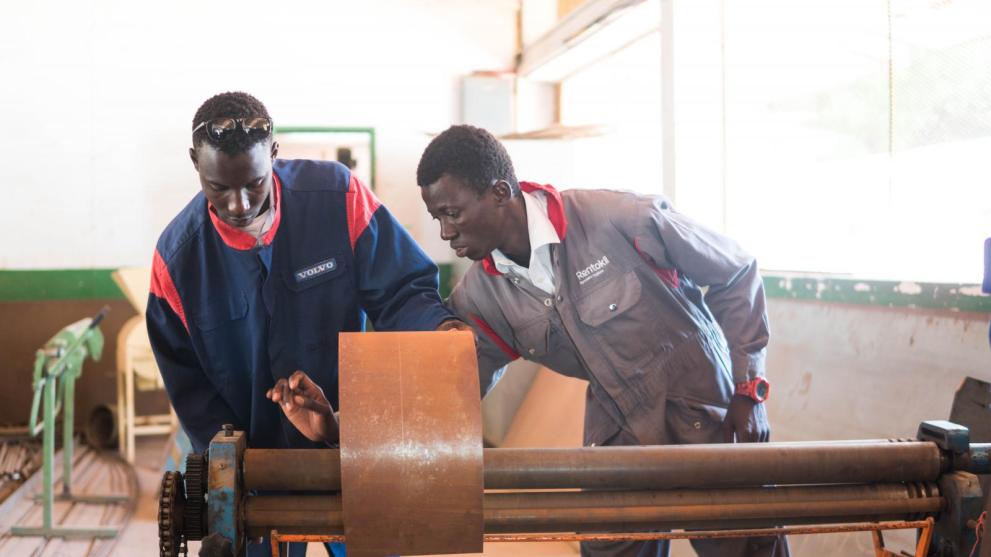
Thanks to the EU Emergency Trust Fund for Africa in the Sahel and Lake Chad region, more than 19,100 jobs have been created and 27,775 individuals have benefited from professional training or skills development since the launch of the EUTF in November 2015. Approximately 34% of the jobs created have been benefitting the youth. In the first quarter of 2019, 3,604 jobs were created which represented a 23% increase on the total achieved up to December 2018. These are some of the main employment-related results under the second Monitoring and Learning System (MLS) report*, presenting results for the Sahel and Lake Chad window until 31 March 2019 for 10 out of 12 countries of the region (Burkina Faso, Cameroon, Chad, The Gambia, Guinea, Mali, Mauritania, Niger, Nigeria, and Senegal). Upcoming reports will include remaining countries covered by the Sahel and Lake Chad window.
Resilience activities have contributed to significant results in early 2019. More than 809,700 people have received nutrition assistance (screening malnutrition, awareness raising activities on nutrition best practices and support to health centres) and nearly 2,536,200 have benefited from improved access to basic services such as health, sanitation, education. From January to March only, access to basic services improved for 346,234 people partly through 807 newly built or renovated social infrastructures.
In the area of migration management, significant progress has been made during the first quarter of 2019. Nearly 68,300 additional migrants or potential migrants were reached by information campaigns on migration and risks linked to irregular migration, a 22% increase since the end of 2018. In March, more than 32,000 migrants had benefitted from voluntary return and nearly 59,670 had benefitted from post arrival and reintegration assistance. Together, Nigeria and Mali continue to account for a significant part of the reintegration assistance provided (42%) although several countries are also experiencing important increases such as Côte d’Ivoire, with a 14% increase in Q1 2019. Niger is the Sahel and Lake Chad country from where most voluntary returns have been observed, reaching 86% of the total figure, although significant increases have been registered in Mauritania which reached 2,086 by the end of March (+120% since December 2018).
Significant figures are also observed under governance and conflict-prevention activities. While 730,600 people have participated in conflict prevention and peace building activities, more than 921 institutions and non-state actors have benefited from trainings in these areas. Significant achievements can be observed in Chad, were the number of people participating in conflict prevention and peace-building activities has increased by 273% in the first quarter of 2019 only, reaching 225,708 beneficiaries.
As the Sahel and Lake Chad regions faces a number of pressing challenges such as extreme poverty, frequent food and nutrition crises, conflict, irregular migration and related crimes such as human trafficking and migrant smuggling, the EUTF team is striving to timely deliver quality results on the ground, answering the needs of the population in the most remote and neglected areas of the 12 countries covered by the EUTF in the Sahel and Lake Chad.
The report is now available here.
*Some figures provided in the previous MLS report have been subject to revision. Figures hereby provided can be also subject to changes due to methodological modifications in data counting.
Details
- Publication date
- 12 September 2019
- Region and Country
- Guinée
- Ghana
- Côte d'Ivoire
- Senegal
- Tchad
- The Gambia
- Mali
- Mauritanie
- Burkina Faso
- Cameroun
- Nigeria
- Niger
- Partner
- Altai Consulting
